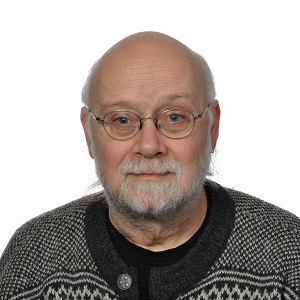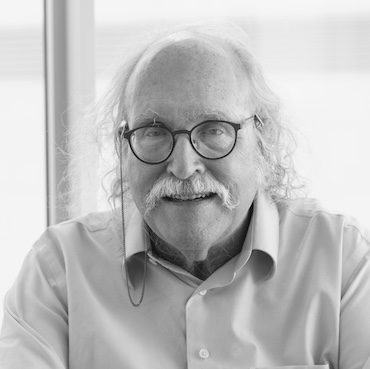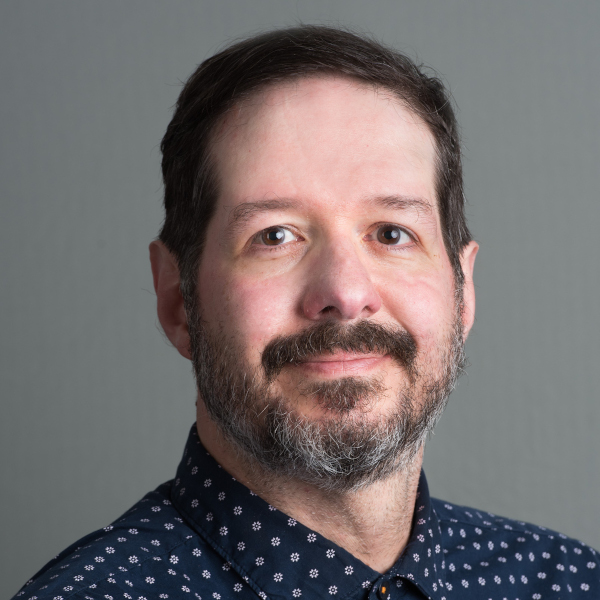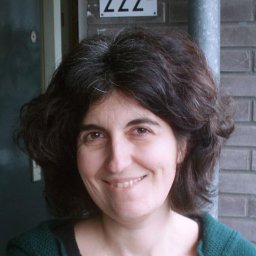2025/26

Fred Landman
Tel Aviv University
t.b.a.
1 May 2026, 2:00 – 4:00 pm
2024/25

Vann McGee
M.I.T.
Terrestrial Logic
We explore a “rules-of-inference first” methodology for logical theory. Instead of starting with truth conditions and looking for truth-preserving rules, we start out with the rules and set out to find appropriate truth conditions. We reach the conclusion that the classical rules pin down the semantic values of the logical words – “or,” “not,” “for all,” and so on – precisely. Inasmuch as, at least outside pure mathematics, human language and thought are saturated through and through with vagueness, this is, I think, a surprising outcome.
21 November 2025, 2:00 – 4:00 pm, BUSN 127
2023/24

Denis Hirschfeldt
University of Chicago
Reductions between problems in reverse mathematics and computability theory
Many mathematical principles can be stated in the form "for all X such that C(X) holds, there is a Y such that D(X,Y) holds", where X and Y range over second-order objects, and C and D are arithmetic conditions. We can think of such a principle as a problem, where an instance of the problem is an X such that C(X) holds, and a solution to this instance is a Y such that D(X,Y) holds. I will discuss notions of reducibility between such problems coming from the closely-related perspectives of reverse mathematics and computability theory.
2022/23

Maria Aloni
ILLC, University of Amsterdam
Nothing is Logical
People often reason contrary to the prescriptions of classical logic. In the talk I will discuss some cases of divergence between everyday and logical-mathematical reasoning and propose that they are a consequence of a tendency in human cognition to neglect models which verify sentences by virtue of an empty configuration [neglect-zero tendency, Aloni 2022]. I will then introduce a bilateral state-based modal logic (BSML) which formally represents the neglect-zero tendency and can be used to rigorously study its impact on reasoning and interpretation. After discussing some of the applications, I will compare BSML with related systems (truthmaker semantics, possibility semantics, and inquisitive semantics) via translations into Modal Information Logic [van Benthem 2019].
Maria Aloni. Logic and conversation: The case of free choice, Semantics and Pragmatics, vol 15 (2022)
Johan van Benthem. Implicit and Explicit Stances in Logic, Journal of Philosophical Logic, vol 48, pages 571–601 (2019)
2021/22

Graham Priest
CUNY Graduate Center
How Not to See Pierre: Making Sense of Absences
There is good reason to suppose that there are absences. For example, it would appear that they can be seen. But the supposition that there are absences faces both metaphysical and epistemological problems. This talk will deploy the tools of formal mereology to show how these problems can be solved.
2020/21

Paola D’Aquino
Università della Campania
Algebraic constructions in models of Peano Arithmetic and its weak fragments
I will concentrate on the ideal theory of models of Peano Arithmetic and some of its weak fragments. I will present a model theoretic analysis of the residue rings of these structures.
2019/20

Chris Kennedy
University of Chicago
Expressing experience: Not necessarily 'stoned', but 'beautiful'
It has been frequently observed in the literature that assertions of sentences containing predicates of personal taste like 'tasty' and 'fun' give rise to an acquaintance inference that is not present in assertions of sentences containing non-subjective predicates. An utterance of "sea urchin is tasty," for example, implies that the speaker has first-hand experience of the taste of sea urchin, but an utterance of "sea urchin is orange" does not imply first-hand experience of the color of sea urchin. The goal of this talk is to develop and defend a broadly expressivist account of this phenomenon: acquaintance inferences arise because plain sentences containing subjective predicates are designed to express distinguished kinds of mental states, which differ from beliefs in that they can only be acquired by undergoing certain experiences. The resulting framework accounts for a range of data surrounding acquaintance inferences, as well as for striking parallels between acquaintance inferences in subjective predication and the kind of considerations that have fueled motivational internalism about the language of morals.
2018/19

Sara Negri
University of Helsinki
A three-fold method for non-classical logics
There are three established ways of analysing the validity of a logical argument: axiomatic, semantic, and inferential; they correspond to what could be called the normative, the descriptive, and the deductive face of a logical system and are tightly related to each other by fundamental meta-theorems.
For non-classical logics, each of the three aspects has drawbacks when considered in isolation. The situation changes, however, drastically when the three aspects are developed in parallel. Through the labelled formalism, by now is a well-developed methodology, models can be considered as purely mathematical objects with no ontological assumptions upon them: the semantics is turned into an essential component in the syntax of sequent calculi with invertible rules. Such calculi not only provide a tool for the automatisation of reasoning, but can also be used to establish very general properties of logical systems.
2017/18

Maryanthe Malliaris
University of Chicago
Model theory and ultraproducts
The ultraproduct construction gives a way of averaging an infinite sequence of mathematical structures, such as fields, graphs, or linear orders. The talk will be about the strength of such a construction.
2016/17

Manfred Krifka
Humboldt University Berlin
Conditional Assertions in Commitment Space Semantics
There are two fundamentally different ways to understand conditional clauses: as assertions of conditional propositions (it is asserted that if p, then q), or as conditional assertions of propositions (if p, then it q is asserted). The first approach is prominent in linguistic semantics (Stalnaker, Lewis, Kratzer, von Fintel), and sophisticated theories have been developed to represent their meaning compositionally. But there are compelling arguments for the second (e.g., Dudman, Barker, Edgington; also Stalnaker, 2009), like the constraints for embedding conditionals under negation and disjunction, or the existence of non-assertive conditionals. In this talk I will propose an analysis of conditionals within dynamic semantics (cf. Heim, Veltman, Kaufmann, Starr for such approaches), in particular within the framework of Commitment Space Semantics (Cohen & Krifka 2014, Krifka 2015). CSS has a notion of common ground (called commitment space) that does not only assume a body of shared information, but also has a projective component indicating the various ways how the common ground may develop in the future. An indicative conditional does not affect the currently shared information in the narrow sense, but also its future development; the assertion of the conditional if p then q changes a commitment space so that whenever p holds in future developments, q is asserted. I will show that this modelling of conditionals predicts that conditionals cannot be negated or disjoined in a straightforward way, and that it allows for non-assertive conditionals, like conditional questions. I will also discuss counterfactual conditionals and argue that their “fake” past tense (Iatridou) can be understood as the process of going back to a hypothetical past information state in which the protasis p could still be consistently assumed.
2015/16

Timothy Williamson
University of Oxford
What if the impossible happened?
If 5+7 had turned out to be 13, everyone would have danced in the streets with joy." That conditional is true according to standard theories of conditionals, simply because it is impossible for 5 + 7 to turn out to be 13. Many philosophers regard such consequences as obviously wrong. I will explain why significant issues are at stake in this dispute, how our judgments about such matters may be misled by fallible heuristics, and why the standard view may be right after all.
2014/15

Stephen G. Simpson
Pennsylvania State University
Potential versus actual infinity: insights from reverse mathematics
(PDF version with references) In the philosophy of mathematics, there is a crucial distinction between potential infinity and actual infinity. This distinction gives rise to four contrasting viewpoints: ultrafinitism, finitism, predicativism, and infinitism. I am convinced that of these four, finitism is the most objective. This conviction heightens the importance of Hilbert’s program of finitistic reductionism. Some relevant formal systems are PRA, WKL0, IR, ATR0, and ZFC. Foundational research over several decades has revealed that large parts of contemporary mathematics, including the applicable parts, can be formalized in systems such as WKL0 which are finitistically reducible. This seems to provide a possible outline for an objective justification of much of contemporary mathematics.
2013/14

Chris Barker
New York University
The Logic of Scope
Scope-taking is one of the most dramatic, as well as one of the most characteristic, phenomena in natural language. In scope-taking, a deeply embedded constituent controls (take scope over) the interpretation of surrounding material. For instance, when we gloss the sentence "Mary called everyone yesterday" as `for every person x, Mary called x yesterday', we are claiming that the embedded direct object "everyone" controls the interpretation of the entire surrounding sentence.
50 years ago, Lambek provided a substructural logic called NL for reasoning about ordinary function-argument combination (`merge') in natural language. He analyzed argument\function combination and function/argument combination as the left and right adjoints of string concatenation. In Linear Logic terms, his merge is a (noncommutative) multiplicative conjunction (tensor).
In order to extend Lambek's logic to scope-taking, we need to residuate not on concatenation, but on the part-whole relation. The adjoints then are subpart\whole and whole/subpart. This characterizes a syntactic relationship not of left or right adjacency, but of being-surrounded-by, and of surrounding---exactly what is needed for characterizing scope-taking.
I will present a substructural logic called NL_lambda in which the relationship between the merge mode and the scope-taking mode is characterized by a single structural inference rule. Reporting on joint work with Chung-chieh Shan, I will show that the logic is sound and complete with respect to the usual class of relational models. I will also show that the logic is conservative with respect to Lambek's original logic. That is, a sequent in the language of NL is a theorem in NL_lambda iff it is a theorem in NL. In addition, I will show that NL_lambda is decidable.
Illustrative applications of the logic to natural language phenomena will include not only ordinary scope-taking and scope ambiguity, but more exotic phenomena such the parasitic scope analysis for words such as "same" and "different".
2012/13

Stewart Shapiro
Ohio State University
Relativism about logic: saying what we mean; meaning what we say
I have recently been arguing for a sort of pluralism or relativism concerning logic. The purpose of this paper is to explore the ramifications of this view concerning the meanings of logical terminology. It is a twist on the old question of whether there is a substantial disagreement between, say, classicists and intuitionists, or whether they are merely talking past each other, as they attach different meanings to the crucial logical terminology. I'd like to argue for the view that the very question of whether the meanings are the same or different is itself a context sensitive matter. It depends on what aspects of the situation are salient.
2011/12

Jeremy Avigad
Carnegie Mellon University
Understanding, formal verification, and the philosophy of mathematics
The philosophy of mathematics has long been focused on determining the methods that are appropriate for justifying claims of mathematical knowledge, and the metaphysical considerations that render them so. But, as of late, many philosopher's have called attention to the fact that a much broader range of normative judgements arise in ordinary mathematical practice; for example, questions can be interesting, theorems important, proofs explanatory, concepts powerful, and so on. The associated values are often loosely classified as aspects of "mathematical understanding".
Meanwhile, In a branch of computer science known as "formal verification," the practice of interactive theorem proving has given rise to software tools and systems designed to support the development of complex formal axiomatic proofs. Such efforts require one to develop models of mathematical language and inference that are more robust than the the simple foundational models of the last century.
In this talk, I will explore some of the insights that emerge from this work, and some of the ways that these insights can inform, and be informed by, philosophical theories of mathematical understanding.
Associated papers:
2010/11

Angelika Kratzer
University of Massachusetts
Epistemic modals: embedded, modified, and plain.
2009/10

Michael Glanzberg
University of California at Davis
Semantics, truth, and truth in a model.
2008/09
